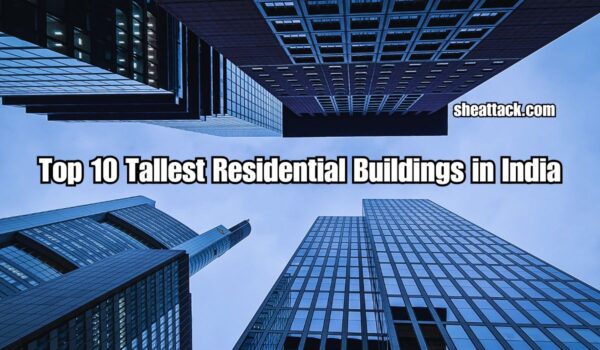Tallest Residential Buildings in India: India’s journey into towering residential architecture began with the completion of the LIC Building in Chennai in 1959. Initially, it featured 12 floors and stood as the nation’s first skyscraper. For a few years, it held the record until it was overtaken by the 25-story Usha Kiran Building in 1961. Fast forward to 2024, the residential construction market in India is valued at approximately $189.80 billion. Mumbai is the epicenter of high-rise living in the country, boasting over 200 skyscrapers and 5,600 tall buildings within its metropolitan area. Since the LIC Building’s time, several taller structures have emerged across various Indian cities. Let’s delve into the top 10 tallest residential buildings in India today.
Top 10 Tallest Residential Buildings in India
1. Palais Royale
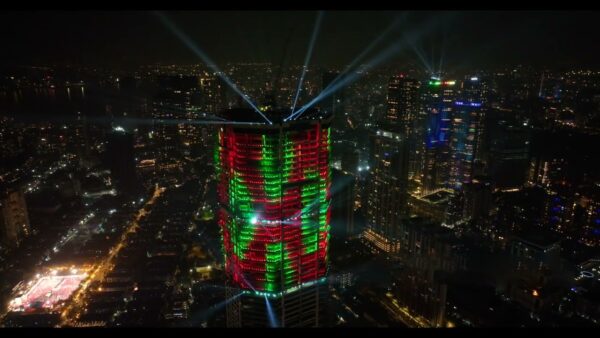
Height: 320 m (1,050 ft)
Floors: 56
Construction Started: 2008
Palais Royale, located in Worli, Mumbai, is currently the tallest residential building in India. It is also the third tallest building in the country. Although the building achieved its full height in 2018, finishing touches are still underway. Originally expected to be completed by December 30, 2023, various delays, including legal and logistical issues, have pushed the anticipated completion date to December 30, 2024.
2. Lokhandwala Minerva
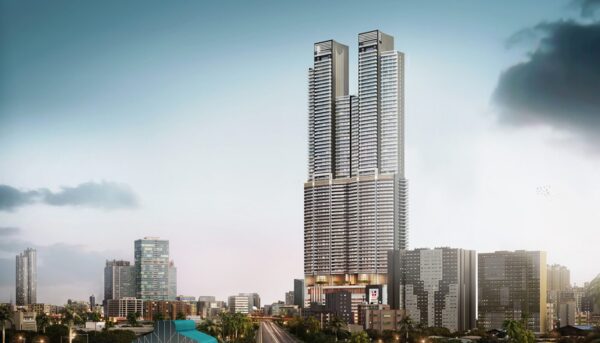
Height: 301 m (988 ft)
Floors: 83
Construction Started: 2011
The Lokhandwala Minerva, situated in Mumbai, is the second tallest residential building in India. This structure comprises two towers, each rising 78 floors. The design features parking levels from the 5th to the 13th floors, high-end amenities from the 14th to the 19th floors, and open-to-sky gardens on the 20th floor. The residential sections span from the 26th to the 76th floors, with luxurious penthouses occupying the top two floors.
3. Piramal Aranya Arav
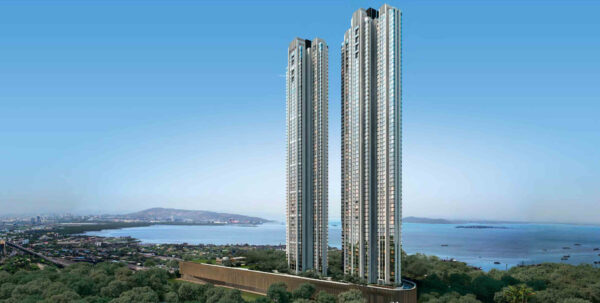
Height: 282.2 m (926 ft)
Floors: 83
Opened: 2018
Located in Byculla, Mumbai, Piramal Aranya Arav ranks as the third tallest residential building in the country. Designed by HOK Architects, the tower was completed in 2022. The building offers high-end apartments with modern amenities and provides residents with impressive city views.
4. World One
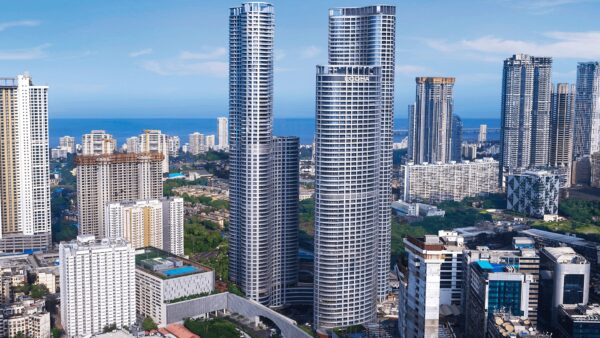
Height: 280.2 m (919 ft)
Floors: 76
Construction Started: 2011
World One, situated in Mumbai, is the fourth tallest residential building in India. It rises 76 floors and is part of a larger complex on a 7.1-hectare site that was once home to Shrinivas Mill. The complex, developed by the Lodha Group, initially aimed for a height of 442 meters. However, after facing height restrictions from the Airports Authority of India, the project was scaled back and completed with a height of 280.2 meters.
5. The Park
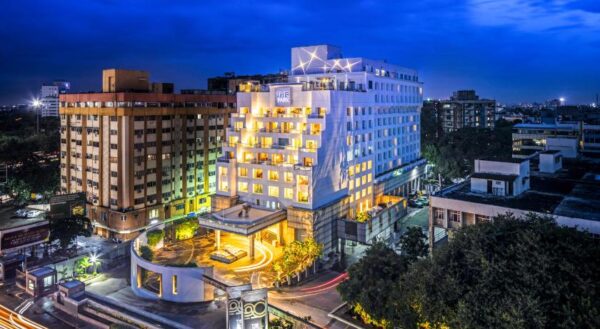
Height: 268 m (879 ft)
Floors: 76
Construction Started: 2013
Lodha Park, also in Mumbai, is a prominent residential project by the Lodha Group. Purchased from DLF Limited in 2012, the development includes five towers, each 268 meters tall and featuring 76 floors. These towers were the tallest buildings in India from 2019 until 2020, before being surpassed by newer constructions.
6. Omkar 1973
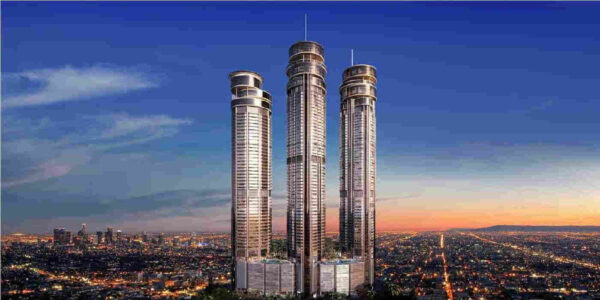
Height: 267 m (876 ft)
Floors: 73
Construction Started: 2013
Omkar 1973 Worli is another significant residential project in Mumbai, developed by Omkar Realtors. The project includes three towers, each standing 73 stories high, with over 400 upscale apartments. The construction is expected to be completed by the end of 2024, featuring luxury apartments ranging from 2,500 to 18,200 square feet.
7. Nathani Heights
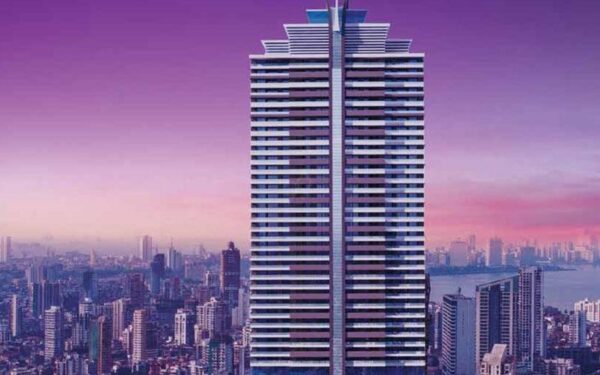
Height: 262 m (860 ft)
Floors: 72
Construction Started: 2012
Nathani Heights, located near Mumbai Central railway station, stands 262 meters tall. Construction began in 2012, and the building was completed in 2020. Offering panoramic views of the Mahalaxmi Racecourse and the Arabian Sea, it is a notable addition to Mumbai’s skyline.
8. Three Sixty West Tower B
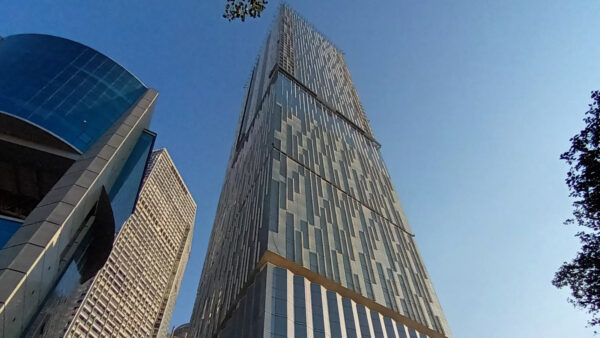
Height: Tower B: 260 m (853 ft), Tower A: 255.6 m (839 ft)
Floors: Tower B: 66, Tower A: 52
Construction Started: 2011
Three Sixty West in Mumbai features two towers connected by a base. Tower B, the taller of the two, reaches 260 meters with 66 floors, while Tower A stands 255.6 meters with 52 floors. Tower A is designated for hotels and offices, while Tower B houses private residences. The base includes amenities such as restaurants and ballrooms.
9. The 42
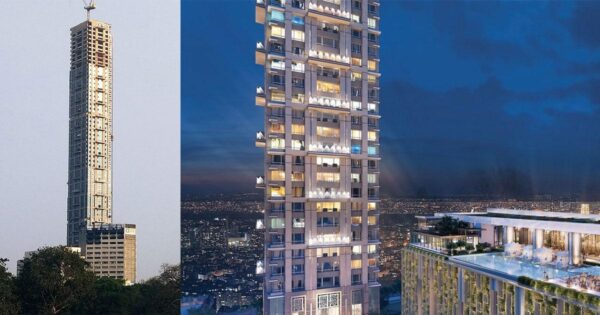
Height: 260 m (850 ft)
Floors: 65
Construction Started: 2012
The 42, located in Kolkata, is a prominent residential building standing 260 meters tall. Situated on Chowringhee Road, it became the tallest building in India outside Mumbai upon its completion in 2019. Originally planned in 2008, construction began in 2010, making it a significant architectural achievement in Kolkata.
10. One Avighna Park
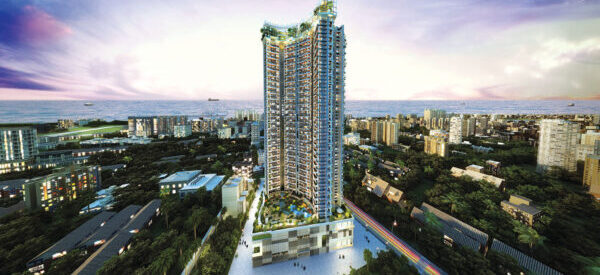
Height: 260 m (853 ft)
Floors: 64
Construction Started: 2010
One Avighna Park, located in Parel, Mumbai, is a luxury residential skyscraper. The project, which started in 2010, consists of two towers, each with 64 floors. Certified as a platinum-rated green building by the IGBC, it features upscale apartments with private plunge pools, a sports area, and a grand entrance lobby.
Conclusion
The tallest residential buildings in India reflect the country’s rapid advancement in high-rise construction and architectural innovation. These skyscrapers not only define city skylines but also symbolize India’s growing urban sophistication. From the LIC Building’s historic height to the modern marvels of Palais Royale and Lokhandwala Minerva, each structure tells a story of ambition and design. As India continues to develop, we can expect even taller and more impressive buildings to emerge, pushing the boundaries of architectural achievement. The next time you find yourself in a major Indian city, be sure to look up and appreciate these towering feats of modern engineering.

